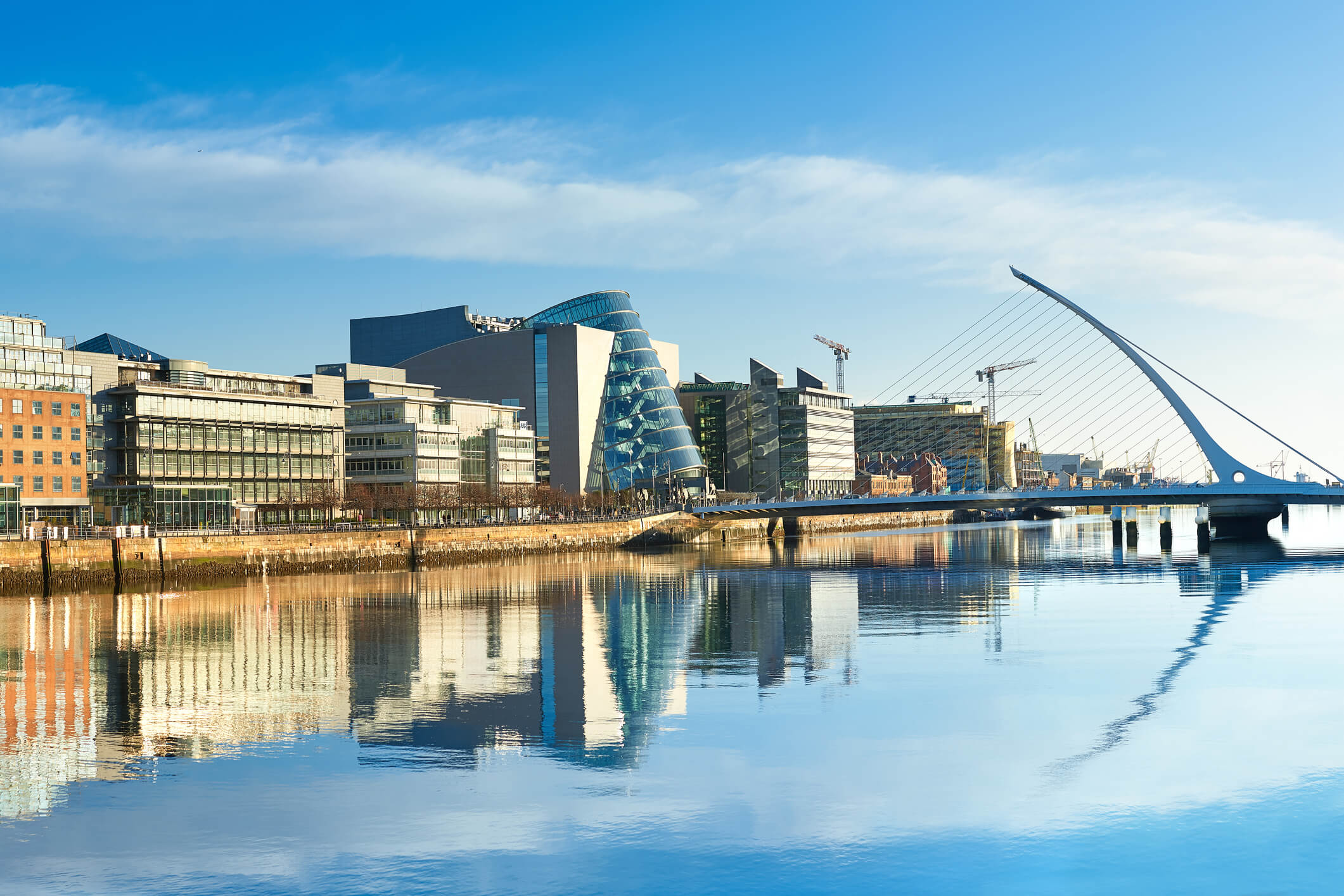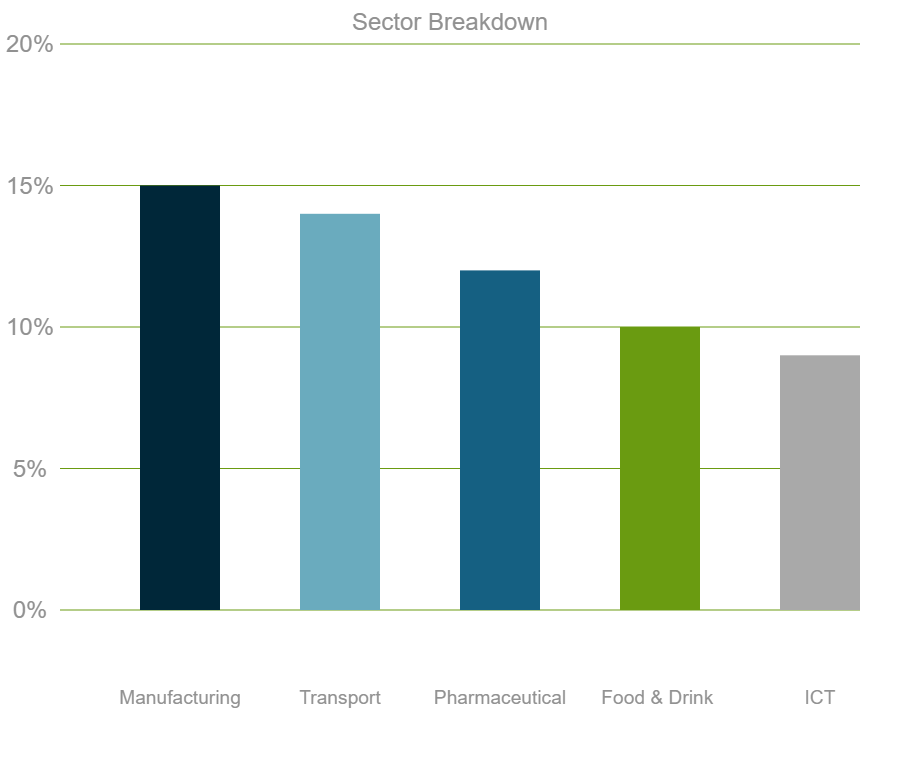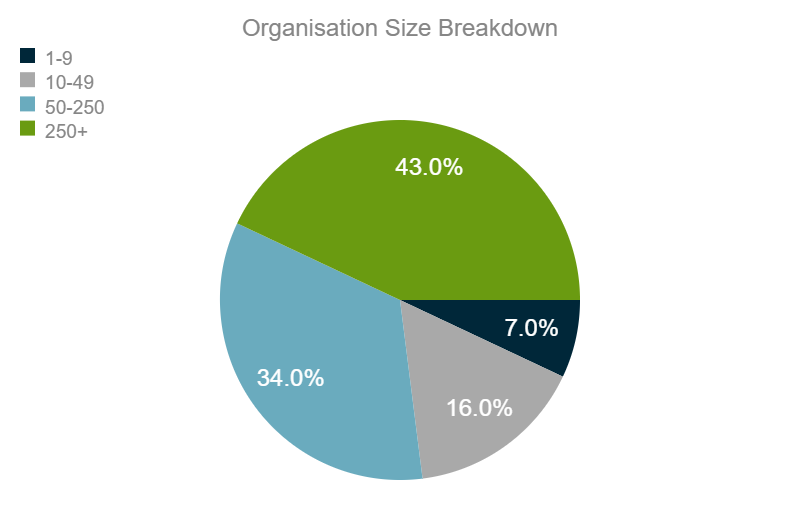


The Power of Upskilling: Evaluating the role of training in supporting Irish Enterprises to be climate resilient
Part 1 of 4 - Assessing Irish Enterprise Engagement in Climate Action





This article is the first in a four-part series analysing how Irish Enterprise is responding to the challenge of planning for a climate-resilient future. This series is based on a study of 106 sustainability action plans created mainly by large and medium-sized organisations who participated in Skillnet Climate Ready Academy’s Sustainability Leaders Programme (SLP) between 2022-2023. SLP uses the Sustainable Development Goals (SDGs) as a framework to help businesses develop a sustainability action plan.
To read follow-on articles in this series, see part 2, part 3 and part 4.
Below is a breakdown of the top sectors and organisation sizes that completed SLP within this timeframe:

Figure 1: Frequency of Top 5 Sectors in SLP 2022-2023.

Figure 2: Frequency of employee size categories in SLP 2022-2023.
Part one of the series will cover:
In 2019, the European Union launched the EU Green Deal, a roadmap and action plan to make Europe the first climate neutral continent by 2050 with approximately 25% of the EU’s long-term budget focused on climate action1. In line with the Paris Agreement and the EU Green Deal, the Irish Government passed the Climate Action and Low Carbon Development Act 20212. This Act sets legally binding targets to reduce emissions across every sector of the economy and the Government’s annual Climate Action Plans contain the roadmap to halve emissions by 2030 and achieve net zero by 20503.
Despite those commitments, numerous reports have found that progress in responding to the climate crisis has not been at the scale required. A UN report released ahead of COP28 in November 2023 claimed “the world is woefully off-track” to limiting global warming to 1.5 degrees and, with greenhouse gas emissions still rising, global temperatures are heading towards 2.5-to-2.9-degrees Celsius by the end of the century4. In Ireland, the latest projections from the Irish Environmental Protection Agency predict GHG emissions will reduce by 25% by 20305, significantly below the 51% target in the Climate Action Plan3 and more recent 42% target under the EU’s amended Effort Sharing Regulation (ESR)6.
The Irish Government has set maximum limits on Greenhouse Gas emissions targets for each sector of the economy with the industrial sector targeted to reduce emissions by 35% by 20307. Despite the introduction of climate policy and work done on potential pathways to reducing emissions in an Irish context, Irish businesses have been slower than their counterparts in the EU to begin the transition to becoming sustainable. A report by the European Investment Bank found that only 22% of Irish firms have set climate targets compared with an EU average of 41%8. This presents a challenge to Ireland in meeting its climate commitments, as it will require a significant effort to mitigate climate risks in the short to medium term9.
Companies which prepare for disruptive change not only become more resilient but perform better financially over time. A longitudinal study of 83 European multinational companies was conducted between 2008-2015 to assess the relationship between future preparedness maturity and financial performance10.
Businesses with high forecasting maturity that had re-oriented their practices to long-term transformational strategies were found to have 33% higher profitability and 200% higher market valuation growth than the average. It makes business sense for businesses to protect themselves from future climate related risks. In a sample of 100 major businesses, researchers found that the financial impacts resulting from climate change were equal to about 10% of annual sales while the cost of inaction far outweighed the cost of taking action11.
In certain sectors such as Industrial Goods and Services and Construction, companies with a good ESG performance have been shown to have a higher financial performance12. With the SDGs spanning across each ESG pillar, they have the potential to serve as a blueprint of where to identify challenges and risks as well as opportunities for growth and access to new markets13.
Adoption of the SDGs by the business sector across global stock markets has been found to be poor. A survey of 8,550 companies in the MSCI All Country World Index found that only 0.2% of companies were fully aligned to the goals and 55% of companies were either mis-aligned or neutral14.
A 2020 report Charting Ireland’s sustainable future: Innovative approaches towards achieving the UN Sustainable Development Goals for Enterprises by 20FIFTY Partners15 captured recurring themes from Ireland’s enterprise engagement with seven environmentally-focused SDGs and their role in supporting the private sector in delivering impactful contributions to the achievement of the goals. The seven SDGs with a focus on the environment are listed below in Figure 3.
![]() Figure 3: The 7 Environmental SDGs15
Figure 3: The 7 Environmental SDGs15
The first recommendation informed the development of the Skillnet Climate Ready Academy and the Sustainability Leaders Programme16, the outputs of which are the focus of this insights series.
References